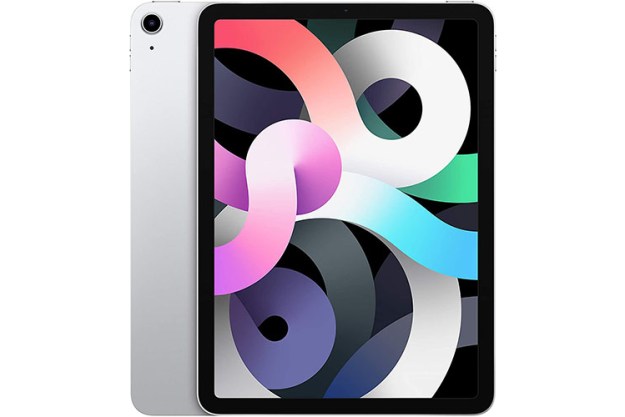
File-sharing giant Megaupload is dead, following an international criminal sting spearheaded by the US Department of Justice. Prior to its closure, the site boasted 50 million users a day, and accounted for four percent of all Internet traffic, according to the DoJ. That means a lot of you out there are looking for a new way to store and share your files. Here, a quick list of 14 sites that will fill the gaping hole in your life left by Megaupload’s abrupt departure. Just don’t blame us if the feds seize one of these next.
Update: FileSonic no longer allows users to share files, according to a notice posted on its front page. Users can still upload new files and access files stored in their cloud folders. It has been removed from this list. In addition, Uploaded.to (which did not appear on this list) has blocked its access to US users.
• RapidShare: The most like Megaupload of the bunch, RapidShare lets users upload files of unlimited size, and share them via an emailable, tweetable, Facebookable link. There is also no storage limit, but files are automatically deleted after a certain period of time. Users who want to utilize RapidShare as a cloud storage service can upgrade to RapidPro for about $39 (29.9 Euro — RapidShare is based in Switzerland) for 150 days, or about $130 for two years.
• MediaFire: A stripped-down version of RapidShare, MediaFire also lets users upload any type of file, with a max upload size of 2GB for free users. There is no storage limit, but also like RapidShare, your files will be deleted after certain period of time. Users can upgrade to a Pro account for $9 a month, which also ups max file size to 4GB. Files are shared via a link.
• Dropbox: A popular, robust cloud storage service, Dropbox gives users 2GB of storage for free, and lets users share files with anyone via their public folder, or other Dropbox users through email invitation. Users can upgrade to 50GB for $10 a month, or 100GB for $20 a month.
• Box: Like Dropbox, Box is primarily a cloud storage service, as opposed to a straight file-sharing service. Users get 5GB for free, and can share via a direct link to a file, or can invite users to view the contents of an entire folder by email. Free users can only upload files 25MB or smaller. Paid users can up their upload limit to 1GB-per-file for $10 a month, which also expands storage to 25GB, or $20 for 50GB.
• YouSendIt: One of the original file-sharing services, YouSendIt offers 2GB of free storage, with a per-file upload limit of 50MB. (Free users also have to deal with ads.) Files can then be shared via email, but only five per month for free users. Up your storage to 5GB for $10 a month (or $50 per year), and you also get a maximum file size of 2GB, and 10 shares. Unlimited storage and unlimited shares (but the same max file size) is also available for $15 a month, or $150 a year.
• Minus: One of the easiest options available, Minus lets users who sign up for an account simply drag and drop any file (up to 2GB) to upload, and gives users up to 50GB of free storage. Uploaded files can be shared via an automatically-generated link. It’s that simple.
• Amazon Cloud Drive: Like a no-frills version of Dropbox or Box, Amazon’s Cloud Drive gives 5GB of storage space for free, and can be upgraded to 20GB, up to 1,000GB, for about $1 a gigabyte, per year. (Making it by far one of the least expensive options.) Max file size is 2GB. The biggest downside: No files sharing allowed (unless you give someone your Amazon password, of course).
• Microsoft SkyDrive: Completely free, SkyDrive gives users 25GB of free storage, and the ability to share files with others via email. Unfortunately, users can only upload files up to 50GB. Also, you have to have a Hotmail (or other MSN) address. Lame!
• SugarSync: Nearly identical to Dropbox and Box (for most intents and purposes), SugarSync gives away 5GB of storage for free, and offers paid plans that range from $5 per month (30GB) to $25 per month (250GB). Free accounts are limited to 25GB file uploads, or 1GB, if you are a paid user. Files can be shared via link, or by inviting users to join a folder.
• Oron: Super stripped-down, Oron lets free users upload files up to 400MB, up to five files at a time. Uploaded files, which can be shared via link, are only kept for a short period of time, and upload speed is slow, for free users who don’t create an account. Registered users can get upload files up to 1GB in size, and have 250GB of storage. Premium accounts (which cost 10 Euros to 75 Euros, depending on how long you want the account) allow file uploads up to 2GB, with unlimited storage and much faster upload speeds.
• Deposit Files: Similar to Oron, but max upload size jumps to 2GB for all users. Files are also not deleted, like they are with other services. Gold members get a number of perks, including faster download speeds. Prices for Gold accounts range from $12 for one month, to $75 for a year. No sign-up necessary for free users. Files are shared through a link.
• FilePost: Remember all the stuff we just said about Deposit Files? File Post is that, but with a max upload size of 5GB for paid users. Everything else is basically the same.
• FileSonic: A bit more polished and robust than either Oron or Deposit Files, FileSonic offers free users 30 days of storage time, and maximum uploads of up to 1GB. For $9 a month, users receive unlimited storage, unlimited storage time, maximum download speeds and max file uploads of up to 5GB. And yes, files are shared via link.
• WUpload: WUpload sells itself as a “100 percent safe and anonymous” file-sharing site, that gives free users a maximum upload size of 2GB. But free comes at a price: no simultaneous downloads, and a mandatory delay before download can begin. Free users storage space is also limited to 750GB. Premium users can erase all the negatives, and up their max file upload to 10GB for $9 for 30 days, up to $90 for two years.
[Image via Hasloo Group Production Studio/Shutterstock]


